Professional, peer-reviewed papers discussing the Bible and its teachings as they inform all of life and branches into the implications of biblical teachings for all study and academic inquiry.

The Textual Superiority of the Masoretic Text of Genesis 5 and 11
Lita Sanders • April 30, 2025
Currently, there is a textual debate in creationist circles regarding whether the Masoretic Text (MT) or Septuagint (LXX) preserves the correct chronology in the genealogies of Genesis 5 and 11.

The Hyksos— Does the Bible Shed Light on Who They Were?
Troy Lacey • Feb. 26, 2025
An interesting idea has been developed in recent decades that connects the Hyksos with the Bible’s Exodus account.
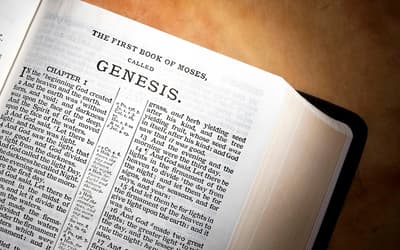
Genesis 1:1–2 and the Doctrine of Creatio Ex Nihilo (Part 2): A Lexical Analysis of the Phrase תֹֹּהוּ וָָבֹֹהוּ
Dr. Joshua D. Wilson • Feb. 12, 2025
Creatio ex nihilo is a logical inference from Genesis, and lexical analyses of Parts 1 and 2 demonstrate that traditional interpreters and theologians are on sure lexical footing when arguing for it.

Chronological Framework of Ancient History: Parts 1–5. Reply
Kenneth C. Griffith , et. al. • Oct. 2, 2024
The authors of the series, “Chronological Framework of Ancient History” respond to critiques.

Chronological Framework of Ancient History. Papers 1–5. Comments
Eric J. Tweedy • Oct. 2, 2024
The author calls some of the conclusions in an earlier series, “Chronological Framework of Ancient History,” into question.

Chronological Framework of Ancient History. Papers 1–5: Response
Kenneth C. Griffith , et. al. • Aug. 7, 2024
Griffith and White respond to Habermehl’s criticisms by demonstrating a model that integrates geological, archaeological, and historical records with the Ussher-Jones Chronology.

Chronological Framework of Ancient History. Papers 1–5: Comments
Anne Habermehl • Aug. 7, 2024
Anne Habermehl claims that the Griffith and White’s series, Chronological Framework of Ancient History, reinforces the longer Septuagint timeline.

The Place of the Exodus in Egyptian History: Further Comments
Anne Habermehl • March 13, 2024
In this second of a three-part series, Habermehl further discusses the placement of the Exodus in Egyptian history and methodology.
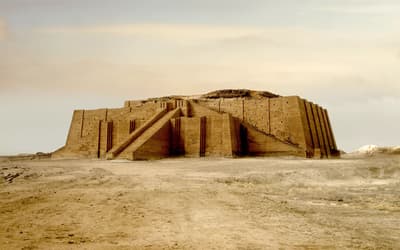
Where in the World Is the Tower of Babel? Comments
A. John M. Osgood • March 13, 2024
This is the first of a three-part series. This first paper discusses Habermehl’s 2011 paper, “Where in the World is the Tower of Babel?”

Bible-Based Knowledge (Science)
Richard Overman • Jan. 17, 2024
This paper proposes biblically based scientific philosophies as well as providing suggested mechanisms for the development of a bible-based scientific model for the four major scientific communities.
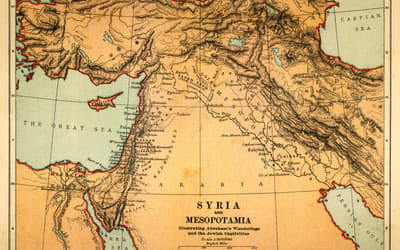
Chronological Framework of Ancient History. 5: The Babylonian Dynasties of Berossus
Kenneth C. Griffith , et. al. • Dec. 20, 2023
The Babylonian dynasties of Berossus are incomplete. The authors solve for the missing values. The resulting table of Berossus covers the era from the Flood to the conquest of Babylon by Cyrus.

Integrating Historical Witnesses in Biblical Chronology
Renae Beckman • Oct. 25, 2023
This paper compares the two chronological approaches and highlights a wide array of historical texts and archaeological finds relevant to dating events in the Old Testament.

The Philosophy of Science 5: A Biblically Based Approach to Science
Dr. Danny R. Faulkner • Aug. 30, 2023
The conclusion to the survey of the nature, practice, and history of science with recommendations for a truly biblical approach to science.

Animal Names in the Bible: What Is Their Purpose?
Bruce Alcorn • Aug. 23, 2023
Animals were a part of His creative acts, and the purpose of this study is to shed some light upon the role they play in helping mankind to live.

Genesis 1:1–2 and the Doctrine of Creatio Ex Nihilo (Part 1): A Lexical Analysis of the Phrase אֵת הַשָּמַיִם וְאֵת הָאָרֶץ
Dr. Joshua D. Wilson • June 7, 2023
In the debate over the proper interpretation of Genesis 1:1, the key issue is over the meaning of a compound phrase.

Heat Problems Associated with Genesis Flood Models—Part 4: Heat Deposited by Magmatic Activity
William Worraker • May 17, 2023
In Part 4 of this series key sources of Flood heat are identified. The primary concern is with the heat deposited as a result of Flood and post-Flood magmatic activity.

Chronological Framework of Ancient History. 3: Anchor Points of Ancient History
Kenneth C. Griffith , et. al. • March 22, 2023
Having triangulated the dates for Babel and the Dispersion in the previous paper the authors triangulate the dates for 27 major events in ancient history.

Chronological Framework of Ancient History. 1: Problem, Data, and Methodology
Kenneth C. Griffith , et. al. • Nov. 16, 2022
This series of papers makes the case that a broad consensus of ancient sources speaks in harmony with Ussher’s chronology of the Bible.

The Place of the Exodus in Egyptian History: Comments
A. John M. Osgood • March 2, 2022
The Egyptian king lists have been arranged sequentially as was common in the ancient world, but they often were listing parallel and with overlapping dynasties.
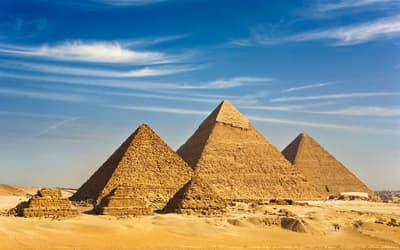
The Place of the Exodus in Egyptian History
Robert M. Porter • Feb. 16, 2022
Egyptian history will be explored, looking for potential shortenings, with a view to putting the Exodus at the end of the Old Kingdom, a time when Egypt collapsed.
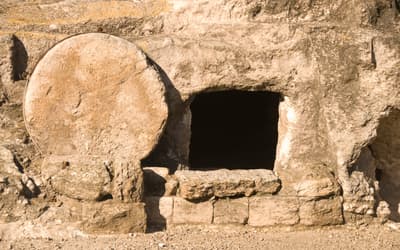
Jesus’s Resurrection: An Archaeological Analysis
Matt Dawson • May 12, 2021
Several archaeological finds are indirect evidences which build a cumulative case supporting the biblical account of Jesus’s resurrection.

Using Stromatolites to Rethink the Precambrian-Cambrian Pre-Flood/Flood Boundary
Ken P Coulson • May 5, 2021
Many creationists are actively engaged in finding the Flood/post-Flood boundary, but most creationists consider the Precambrian-Cambrian contact more attractive.
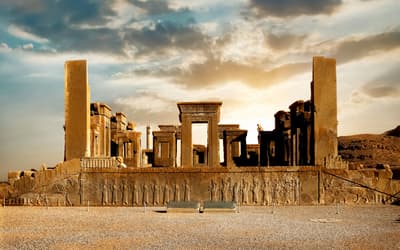
Refuting Challenges to the Accepted Chronology of Achaemenid Empire
Kenneth C. Griffith , et. al. • March 31, 2021
This paper examines the chronology of the Neo-Babylonian and Achaemenid Empires and weighs Martin Anstey’s claim that 82 years of history was fabricated.

Biblical Problems with Identifying Tall el-Hammam as Sodom
Simon Turpin • March 10, 2021
A number of evangelical archaeologists and biblical scholars have concluded that the best candidate to date for biblical Sodom is to be found north-east of the Dead Sea at Tall el-Hammam.

The Grand Canyon, Monument to an Ancient Earth: The Deceptions Continue
Dr. Terry Mortenson • Dec. 2, 2020
The Grand Canyon, Monument to Ancient Earth? rejects the truth of Genesis regarding the Flood and the age of the earth.

Implications of Creation Biology for a Neogene-Quaternary Flood/Post-Flood Boundary
Chad Arment • Nov. 4, 2020
While several current Flood models posit an Upper Cenozoic Flood Boundary, none of them address the problem of biblical kinds and their relationship Genesis.
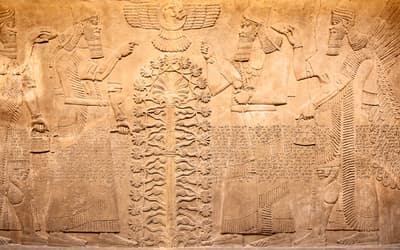
The Mesopotamian Deluge Accounts: Neither History Nor Revelation
Jason W. Landless • Sept. 30, 2020
The deluge poems of Mesopotamia are soaked in a moral and theological framework that is not just different from Genesis but utterly hostile to it.

Louis Agassiz and Alexander Winchell: Two Case Histories of Creationists Who Illustrate That Rejecting Genesis Influences the Acceptance of Racism
Dr. Jerry Bergman • Sept. 23, 2020
Theories that attempted to harmonize evolution and the Scriptures gave birth to, and perpetuated, a form of scientific racism based on Darwinism.

Inerrancy and Biblical Authority: How and Why Old-Earth Inerrantists Are Unintentionally Undermining Inerrancy
Dr. Terry Mortenson • Sept. 16, 2020
The old-earth signers of the CSBInerrancy unintentionally violated their own principles of interpretation and unintentionally undermined the inerrancy and the authority of Scripture.

Remembering Spillover Erosion of Grand Canyon
Dr. Steve Austin , et. al. • Sept. 9, 2020
We should remember an important fact—creationist and evolutionist thinking about spillover continues to make a significant contribution to our understanding of erosion of Grand Canyon.

It’s for the Birds: Avian Fine-Tuning of Flood Chronology
Dr. Steven W. Boyd • Aug. 26, 2020
Genesis 8:5–13 reveals the character of Noah and delimits the time of the water’s becoming powerful to between 16 and 23 days after the Flood began.

The Firmament: What Did God Create on Day 2?
Dr. Terry Mortenson • Aug. 19, 2020
Considerable disagreement exists in the church about what God made on the second day of Creation Week in Genesis 1.

Effects of the Fall on the Physical Creation: A Biblical Analysis
Zachary Klein , et. al. • Aug. 12, 2020
To interpret the natural world through the lens of Scripture, one must have a correct understanding of the Fall and its effects on the physical creation.

Heat Problems Associated with Genesis Flood Models—Part 3: Vapour Canopy Models
William Worraker • Aug. 5, 2020
The biblical and scientific arguments for a pre-Flood vapour canopy do not support the theory.

Heat Problems Associated with Genesis Flood Models—Part 2: Secondary Temperature Indicators
William Worraker • Sept. 18, 2019
The Genesis Flood produced drastic geological changes involving extremely energetic processes which also generated an enormous heat load.

How Scholars’ Perceptions of the Semantic Range of יוֹם Have Affected Their Discussions of the Age of the Universe: Part 3
John C. P. Smith • July 17, 2019
The study looks at delineations and definitions of יוֹם in Scripture, and in lexical and other sources.

How Scholars’ Perceptions of the Semantic Range of יוֹם Have Affected Their Discussions of the Age of the Universe: Part 2
John C. P. Smith • April 24, 2019
There is a considerable disconnection between lexicography regarding יוֹם and the formation of creation theology.

How Scholars’ Perceptions of the Semantic Range of יוֹם Have Affected Their Discussions of the Age of the Universe: Part 1
John C. P. Smith • March 13, 2019
There is a considerable disconnection between lexicography regarding יוֹם and the formation of creation theology.

Critical Analysis of Hugh Ross’ Progressive Day-Age Creationism Through the Framework of Young-Earth Creationism
David McGee • Feb. 13, 2019
The most important part of the debate between views on creationism is about the presuppositions of each group and their biblical hermeneutics.

Abortion: A Biblical, Biological, and Philosophical Refutation
Matt Dawson • Jan. 23, 2019
A holistic approach which accounts for biblical, biological, and philosophical truths must conclude that the unborn represent human beings with full personhood.

Testing a Flat-Earth Prediction: Is the Moon’s Light Cooling?
Dr. Danny R. Faulkner • Jan. 9, 2019
Flat-earthers often claim that moonlight has a cooling property. I present the results of three independent experiments that test this claim.

Syntactical Features of Hebrew Genitive Clauses and Their Implications for Translating Genesis 1:1
Dr. Joshua D. Wilson • Dec. 19, 2018
It is highly improbable that Genesis 1:1 contains a genitive clause, and it is equally improbable that the verse could be rendered with a dependent clause.

Refuting Dubious Claims Regarding Natural Selection
Dr. Jason Lisle • Dec. 5, 2018
Randy Guliuzza has made some controversial claims regarding the cause and nature of adaptation of organisms to their environment. We examine his claims.
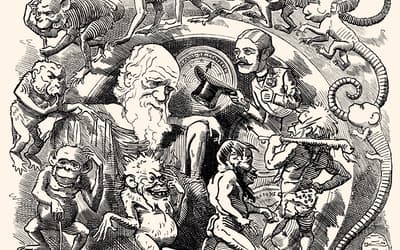
Still No Replacement of Darwin—A Reply to Nathanial Jeanson’s Response to my Review of Replacing Darwin—The New Origin of Species
Stefan Frello • Nov. 21, 2018
I used to think that when creationists talk about creation and evolution as a clash between worldviews, they were wrong. Jeanson has helped me change my mind.

The Most High and the Axiology of Genesis 1: Could God Create Everything Good from the Beginning?
Callie Joubert • Nov. 14, 2018
It is not unintelligible that God created everything good from the beginning; it is only unintelligible to the person who makes the claim.

Heat Problems Associated with Genesis Flood Models—Part 1: Introduction and Thermal Boundary Conditions
William Worraker • July 11, 2018
The Genesis Flood produced drastic geological changes involving extremely energetic processes which also generated an enormous heat load.

Numerical Modeling of the Large-Scale Erosion, Sediment Transport, and Deposition Processes of the Genesis Flood (Revised)
Dr. John Baumgardner • June 27, 2018
This paper describes a numerical model for investigating the large-scale erosion, transport, and sedimentation processes associated with the Genesis Flood.

Biblical Integration in Anatomy and Physiology: A Design Approach
Elizabeth Sled • June 20, 2018
We have been created fearfully and wonderfully by our Creator God, and the human body showcases God’s intricate design.
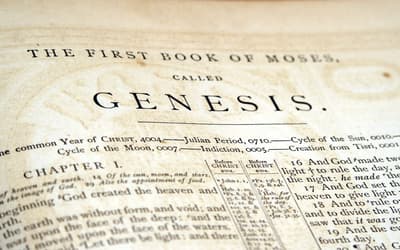
The Hermeneutics of Adam: A Figurative Approach to Genesis 1 and the Historicity of Adam1
Todd S. Beall • March 7, 2018
It is here argued that the best interpretation is that Adam and Eve are real, historical persons.

Linguistic Traits of Hebrew Relator Nouns and Their Implications for Translating Genesis 1:1
Dr. Joshua D. Wilson • Feb. 28, 2018
For nearly a thousand years a small group of proponents have argued for a different translation of Genesis 1:1.

Methuselah’s Begetting Age in Genesis 5:25 and the Primeval Chronology of the Septuagint: A Closer Look at the Textual and Historical Evidence
Henry B. Smith, Jr. • Aug. 2, 2017
The strong likelihood is that the primeval chronology of the Septuagint reflects most of the numbers that Moses originally recorded in Genesis 5 and 11.

Phenomenological Language and Semantic Naïveté
Kevin Short • June 28, 2017
Denis Lamoureux seeks to resolve perceived contradictions between science and Scripture by persuading that Scripture is not inerrant.

Blessed Be Assyria
Gregory D. Cook • Dec. 14, 2016
Judgment in Nahum follows the pattern of Babel. God would come down, incapacitate a rebellion, and scatter rebels. This contradicts a widely-held belief.

Scriptural Geology, Then and Now
Warren H. Johns • Nov. 30, 2016
The place of the biblical Flood in the geological record remains one of the most hotly debated issues among creationist geologists today.

The Nature of the Neo-Darwinian Evangelicals’ Criticism of Young-Earth Creationists
Jim Owen • Nov. 23, 2016
If we do not understand the dimensions of the war we are engaged in, we are already halfway to theological and historical oblivion.

A Critique of Scientific Explanations of Belief and Unbelief and the Conflict between Evolution and Creationism
Callie Joubert • Nov. 2, 2016
The recent claim that “conflicting networks” in the brain that explain belief and unbelief in God cannot be true.

An Exponential Decay Curve in Old Testament Genealogies
Philip M. Holladay • Oct. 19, 2016
The lifespans of Old Testament people born after the Flood reveal a numerical pattern known as an exponential decay curve.
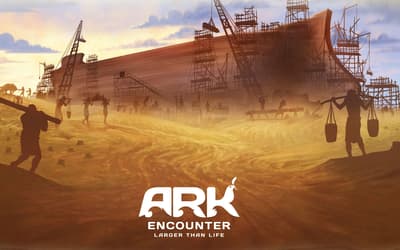
The Last Week before the Flood
Dr. Steven W. Boyd • Aug. 17, 2016
While attempting to elucidate the general chronological profile of the events of the first week, we hope to answer two specific significant questions.

Comments on Ussher’s Date of Creation
Dr. Danny R. Faulkner • July 20, 2016
Ussher’s date of creation of October 23, 4004 BC appears to rely upon two questionable assumptions.

Thoughts on the rāqîa‘ and a Possible Explanation for the Cosmic Microwave Background
Dr. Danny R. Faulkner • March 23, 2016
Dr. Danny Faulkner proposes that Genesis 1:1 is an introductory encapsulation that establishes a foundation for building a biblical model of astronomy.

The Lost World of Adam and Eve: A Response
Steve Ham • July 29, 2015
This paper contends that Walton has given a magisterial authority to the ANE mythic texts in order to interpret the Genesis accounts.

Worldview Bias and the Origin of Hebrew Worship
Scott Aniol • July 15, 2015
Secularists claim that similarities between Israel’s worship and that of other nations in the OT prove Israel’s worship was rooted in its neighbors religion.

How Long Did the Flood Last?
Dr. Danny R. Faulkner • May 13, 2015
Belief that the Flood lasted 371 days is common among recent creationists, but there are other possibilities.

Physical Difficulties with Hugh Ross’ Local Flood Model
Dr. Danny R. Faulkner • April 15, 2015
There are at least three problems with Hugh Ross’ local flood model which render it physically impossible. This is in addition to numerous biblical issues.

A Review of Hugh Ross’ Latest Book, Navigating Genesis
Dr. Danny R. Faulkner • April 15, 2015
While many Christians support Ross’ broad conclusions, few would agree with the details of Dr. Ross’ argument.

A Biblical Creationist Cosmogony
Dr. John G. Hartnett • Jan. 14, 2015
The cosmogony proposed is consistent with all creationist understandings of the biblical texts and has no light-travel time problem.

Old Earth Theology: A Factor that Explains Inconsistent Belief of Inerrancy Among Florida Southern Baptists
David McGee • Oct. 1, 2014
A major shift in thinking seems to be occurring in contemporary evangelical thinking.

Defending History: Temporal Reasoning in Genesis 2:7–3:8
Dr. Steven W. Boyd • Aug. 6, 2014
Creationist studies are replete with discussions of Genesis 1:1–2:3 and 5:28–9:29, but Genesis 2:4–3:24, has remained largely untouched.

A Christian Response to the Crisis in Psychiatry
Callie Joubert • May 28, 2014
Psychiatry is facing a crisis, and it is well known that psychiatry has taken over many concepts from the Bible and secularized them.

Did the Moon Appear as Blood on the Night of the Crucifixion?
Dr. Danny R. Faulkner • Feb. 12, 2014
Assuming that Peter’s statement about the moon being turned to blood was a reference to the Crucifixion, it is plausible that unusual atmospheric conditions at that time were responsible.

Interpreting Craters in Terms of the Day Four Cratering Hypothesis
Dr. Danny R. Faulkner • Jan. 22, 2014
In recent years there has been increasing discussion of craters within the creation paradigm.

Jesus, Scripture and Error: An Implication of Theistic Evolution
Simon Turpin • Oct. 30, 2013
The very teachings of Jesus are being attacked by those who state that, because of His human nature, there is error in some of His teaching regarding earthly things such as creation.

Chimeras, Cybrids, and Hybrids: A Christian’s Observations and Critique of Some Aspects of the Controversy Involving the Mixing of Human and Animal Materials for Scientific Research
Callie Joubert • Sept. 18, 2013
On July 22, 2011, some readers of the Daily Mail UK were stunned by news that “Scientists have created more than 150 human-animal embryos in British laboratories.”

The Dwarfs are for the Dwarfs: Stanley Fish, The Pragmatic Presuppositionalist
Mark Ward, Jr. • July 10, 2013
Literary theorist and prominent public intellectual Stanley Fish is a self-described “antifoundationalist”—someone who believes that truth is relative to one’s “interpretive community.”

The Importance of an Historical Adam
Simon Turpin • May 29, 2013
In secular culture it is common to view the biblical history of Adam as a story, myth, or a parable but this is now also becoming the standard interpretation for many within the evangelical community.

Is There a Dominion Mandate? Discussion: In Defense of Human Dominion
Andrew Kulikovsky • May 1, 2013
Andrew S. Kulikovsky responds to Darek Isaacs’ paper, “Is There a Dominion Mandate?”

Is There a Dominion Mandate? Reply: A Response to Hennigan, Kulikovsky, and McDurmon
Darek Isaacs • May 1, 2013
Darek Isaacs responds to the challenges to his paper, “Is There a Dominion Mandate?”

Is There a Dominion Mandate? Discussion: The Dominion Mandate: Yesterday, Today, and Forever
Joel Mcdurmon • May 1, 2013
Joel McDurmon responds to Darek Isaacs’ paper, “Is There a Dominion Mandate?”

Is There a Dominion Mandate? Discussion: A Response to Darek Isaacs
Tom Hennigan • May 1, 2013
Thomas D. Hennigan responds to Darek Isaacs’ paper, “Is There a Dominion Mandate?”

Did Death of Any Kind Exist Before the Fall?
Simon Turpin • April 3, 2013
Death, whether animal or human, physical or spiritual, is a consequence of man’s disobedience toward his Creator and an intrusion into His “very good” creation.

Evangelical Commentaries on the Days of Creation in Genesis One
Simon Turpin • March 20, 2013
This paper will evaluate and critique six commentaries and the reasons they give for not taking the days of creation literally.

A Further Examination of the Gospel in the Stars
Dr. Danny R. Faulkner • Feb. 6, 2013
While well intended, the gospel in the stars is fraught with problems, and Christians are discouraged from using it.

Is There a Dominion Mandate?
Darek Isaacs • Jan. 9, 2013
The dominion mandate is not named nor defined in Scripture, and so offering a deeper definition, which everyone can agree on, is not possible. However, it is possible to locate where the idea is found
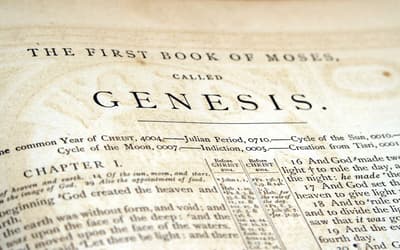
Creation Date of Adam from the Perspective of Young-Earth Creationism
David McGee • Nov. 28, 2012
This article reveals how young-earth creationists have concluded the approximate age of Adam and to explain the reason for a 6,000 year range between both groups.

Is Young-Earth Creationism a Bad Choice?
Callie Joubert • Nov. 14, 2012
Any understanding of Scripture that excludes or indicts the divine Himself is necessarily flawed and false.

Mammalian Ark Kinds
Dr. Jean Lightner • Oct. 31, 2012
Information on the class Mammalia was evaluated in an attempt to get a realistic estimate of what mammalian kinds would have been represented on the Ark.

Abraham and the Chronology of Ancient Mesopotamia
Matt McClellan • Oct. 3, 2012
For many years, Abraham was believed to have lived at the same time as Hammurabi, king of Babylon. Later scholars would date Abraham to the period shortly before the reign of Hammurabi.

The Unbeliever at War with God: Michael Ruse and the Creation-Evolution Controversy
Callie Joubert • Sept. 5, 2012
The evidence to be considered will indicate that a fear of God and afterlife play a major role in the psychology of unbelief, and that points toward the realism of Scripture.

Parallelism in Hebrew Poetry Demonstrates a Major Error in the Hermeneutic of Many Old-Earth Creationists
Dr. Tim Chaffey • July 25, 2012
This article will provide a survey of the nature of Hebrew poetry and provide examples of the various forms of parallelism exhibited in the six poetic books of the Bible.

Theistic Evolution: An Incoherent and Inconsistent Worldview?
Callie Joubert • July 11, 2012
Christians are caught up in theistic evolutionism without realizing that the worldview of theistic evolutionism is incoherent and inconsistent with the teachings of Scripture.

Review of John Lennox’s Book Seven Days That Divide the World: The Beginning According to Genesis and Science
Simon Turpin • June 27, 2012
Lennox reasons that the church has been wrong in the past over its interpretation of Scripture in light of scientific discovery, and that those holding to a young earth are wrong again.

What Makes Us Human, and Why It Is Not the Brain: A Creationist Defense of the Soul: Discussion
Darrell Estabrook • June 13, 2012
Certainly there is more to humans than a complex brain architecture from which a mind would seem to emerge. However, this reader has two difficulties.

What Makes Us Human, and Why It Is Not the Brain: A Creationist Defense of the Soul: Reply
Callie Joubert • June 13, 2012
To depart from Scripture at any point is neither safe nor right. Thus Estabrook’s discussion of my paper (Joubert 2011) in which he expressed his difficulties with my defense of the soul is welcome.

Can Theistic Evolutionism Explain the Origin of Morality?
Callie Joubert • March 14, 2012
Theistic evolutionism is not only inconsistent with Scripture but also philosophically incoherent.

An Evaluation of the Myth That “Nothing in Biology Makes Sense Except in the Light of Evolution”
Dr. Jerry Bergman • Feb. 8, 2012
I reviewed both the textbooks used for life science classes at the college where I teach and those that I used in my past university course work.

What Makes Us Human, and Why It Is Not the Brain: A Creationist Defense of the Soul
Callie Joubert • Dec. 14, 2011
A Christian view of the world entails that science is not a Christian’s ultimate or sole source of knowledge and the physical world is not the only world there is.
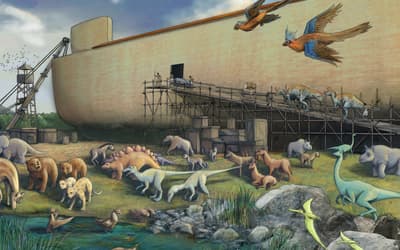
Determining the Ark Kinds
Dr. Jean Lightner , et. al. • Aug. 1, 2014
This research effort provides information necessary for the best possible reconstruction of the animal kinds preserved on the Ark for the Ark Encounter.

Adam, Free Choice, and the Cause of Sin: A Creationist Response to a Christian Evolutionist
Callie Joubert • Oct. 26, 2011
This paper will show that Christian professor Daniel Brannan’s arguments are based on faulty premises regarding Adam’s constitutional nature, the nature of Adam’s perfection and Adam’s free choice.

Ancient Egyptian Chronology and the Book of Genesis
Matt McClellan • Aug. 24, 2011
This paper will look at the different possibilities that can be constructed concerning how long each dynasty lasted and how they relate to the biblical dates of the Flood, Tower, and Patriarchs.

Created Kinds and Essential Natures: A Biblical and Philosophical Response to Evolutionists
Callie Joubert • July 27, 2011
Assuming that “natural kind” is a merely biological rather than metaphysical would be a mistake, resulting in Christians having difficulty evaluating and correcting rival views to created kinds.

An Examination of Augustine’s Commentaries on Genesis One and Their Implications on a Modern Theological Controversy
Dr. Tim Chaffey • July 13, 2011
Few individuals in church history are as popular as Augustine of Hippo. Old-earthers claim him as support for figurative interpretations of Genesis 1. But what did Augustine really say?

Where in the World Is the Tower of Babel?
Anne Habermehl • March 23, 2011
This biblical story is believed by many to be the record of a real historical event that took place after the worldwide Flood, at a time when the earth’s population still lived together in one place.

Toward an Accurate Model of Variation in DNA
Mitchel Soltys • March 2, 2011
The Bible’s description of created kinds implies an information model which uses variables. The findings in this paper show that a model which uses variables forms a basis for understanding biology.

Beyond Distant Starlight: Next Steps For Creationist Cosmology
James Upton • Jan. 26, 2011
On both large and small cosmic scales there is a diverse range of trends, patterns, and phenomena that beckon some kind of explanation.
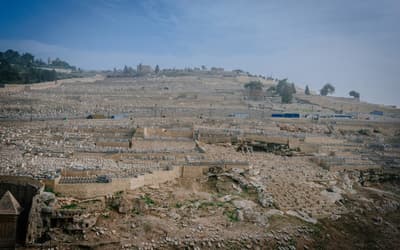
The Geology of Israel within the Biblical Creation-Flood Framework of History: 2. The Flood Rocks
Dr. Andrew A. Snelling • Dec. 15, 2010
The sedimentary strata that cover most of Israel are an obvious record of the Genesis Flood.

Anisotropic Synchrony Convention—A Solution to the Distant Starlight Problem
Dr. Jason Lisle • Sept. 22, 2010
Clear biblical teaching is that the universe is only a few thousand years old, so we should only be able to see objects within a radius of 6,000 light years.

The Geology of Israel Within the Biblical Creation-Flood Framework of History: 1. The Pre-Flood Rocks
Dr. Andrew A. Snelling • Sept. 8, 2010
Understanding the geology of Israel would provide background to biblical events, and potential insights as to where and how they happened.

Inherit the Wind
Dr. Jerry Bergman • March 31, 2010
Although the play was widely believed to be an accurate synopsis of the historical trial, often called the Trial of the Century, it grossly distorted the actual events of history.

Untangling Uniformitarianism
Dr. John K. Reed • March 17, 2010
Of the nine terms associated with uniformitarianism, seven can be replaced or eliminated, which refutes the accusation that diluvialists do not understand uniformitarianism.

Those Enigmatic Neanderthals
Anne Habermehl • Jan. 13, 2010
Young-earth creationists rightly consider that Neanderthals were human, but are divided on various issues.

Systematic Theology Texts and the Age of the Earth
Dr. Terry Mortenson • Dec. 16, 2009
In the past few decades there has been a growing controversy in society and in the Church over evolution and the age of the earth.

Christian Theodicy in Light of Genesis and Modern Science
Dr. Terry Mortenson • Nov. 11, 2009
The problem of evil is always a challenge for the Christian witness. However, William Dembski’s “solution” proves logically and biblically unsound.

Fungi from the Biblical Perspective
Ira Loucks • Oct. 21, 2009
Fungi are intriguing organisms with a wealth of diversity in their morphology and ecology. Determining the fundamentals of their biology from a biblical perspective is a daunting but achievable task.

Hebrew Metaphysic
Doug Kennard • Dec. 31, 2008
Metaphysical development in Hebrew biblical texts is especially elucidated through a series of word studies with a shifting emphasis that each cross-pollinates the others.

An Apology and Unification Theory for the Reconciliation of Physical Matter and Metaphysical Cognizance
Desmond Allen • Feb. 27, 2008
Because one is tangible and the other intangible, the physical and metaphysical are generally treated separately. But this dichotomy is illogical.
Bible on Answers Research Journal
The Bible (lit., “the Book”) is the Word of God. The Christian Bible is comprised of 66 individual books written by more than 40 different authors over the timespan of approximately 1,500 years. The 66 canonical books are further divided into 39 books in the Old Testament and 27 books in the New Testament. The Old Testament, called the Hebrew Bible, is written in Hebrew and Aramaic, while the New Testament is written in Greek.
The Bible is God’s divine revelation to man. The Scriptures are referred to as special revelation in contrast to general revelation. General revelation is that which God reveals about Himself by means other than the Bible, such as through creation, history, or conscience. Though general revelation is valuable in helping us understand high-level truths about God, the Bible alone reveals the details of God’s nature, character, teachings, and plan of salvation for fallen humanity.
Inerrancy is an essential doctrine concerning the Bible. Inerrancy simply states that the Bible is without error (i.e., inerrant) in the original manuscripts/autographs in all that it teaches or affirms. God is Himself Truth, and all that He speaks is truth (Psalm 119:160; John 14:6, 17:17). Therefore, since God is the divine author of all Scripture, inerrancy must logically follow.
Although God is the divine author of Scripture, He superintended human authors through the Holy Spirit to write down the exact words He wished to communicate to humankind. This process is called inspiration. The Greek word which some English translations (KJV, NASB95, NET, CSB) translate as “inspired” or “inspiration” literally means “breathed out” in the original Greek. The ESV therefore translates 2 Timothy 3:16 accordingly: “All Scripture is breathed out by God . . . .” The word Scripture in this passage refers to the Old Testament Scriptures primarily, but several other passages refer to the inspiration of all New Testament books as well (e.g., 1 Corinthians 14:37; 1 Thessalonians 2:13; 2 Peter 1:19–21, 3:15–16).
The Bible alone is infallible, in contrast with all fallible human writing. All papers within the Answers Research Journal (ARJ) are written by authors who hold the Bible to be the very Word of God and the final authority for all of life, conduct, scientific investigation, and academic pursuit.
